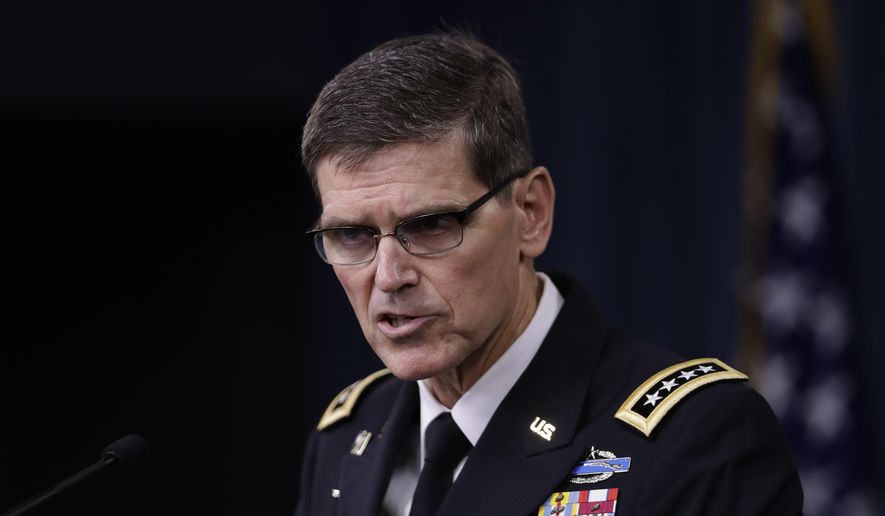The rigorous rules of engagement under which U.S. forces battling Islamic State in Iraq and Syria operate remain unchanged, despite claims that subtle changes to those rules have opened the door to increased risk of civilian casualties.
“We have not relaxed the rules of engagement” for U.S. forces in Iraq and Syria, U.S. Central Command chief Gen. Joseph Votel told House defense lawmakers Wednesday.
Changes to those rules, initiated in the final days of the Obama White House, allowed senior U.S. and coalition commanders in Iraq and Syria to delegate command of American airpower “down to the tactical edge,” the four-star general told members of the House Armed Services Committee.
“We acknowledge our responsibility to act at a higher standard, it is my responsibility as combatant commander to ensure our forces operate in accordance with those goals and standards,” he said.
His comments come as command officials are combating claims U.S. warplanes are engaging in riskier strikes, urged on by the Trump White House, as fighting intensifies against Islamic State, or ISIS or ISIL.
Command and coalition leaders are conducting three separate inquires into U.S. airstrikes against ISIS positions, including one in the in the western Mosul neighborhood of al-Jadida, which reportedly leveled several buildings and left hundreds of Iraqi civilians dead.
“These are absolutely tragic and heartbreaking situations,” Gen. Votel told committee members, adding each allegation of civilian casualties tied to U.S. operations is taken seriously.
Command officials are “doing everything humanly possible to prevent” such instances from taking place on the battlefield, especially as risk of civilian casualties increase as fighting in Iraq and Syria intensifies.
“This investigation continues and there is still much to learn,” the four-star general said, noting U.S. officials ’will look at the behavior of the enemy and how our actions may have played a role” in civilian deaths associated with the al-Jadida strike.
On Tuesday, Lt. Gen. Stephen Townsend, the top U.S. commander in Iraq and Syria, acknowledged there was “a fair chance” a U.S. airstrike played a role in the destruction and carnage resulting from the al-Jadida strike.
“We probably had a role in those casualties,” the general said, adding that “the enemy had a hand in this,” suggesting Islamic State’s use of civilians as human shields and questioning why so many civilians would voluntarily gather in a single building under assault by American airpower.
Gen. Votel allied himself with Gen. Townsend’s claims Tuesday that it was likely U.S. airstrikes played a role in the Mosul massacre, but that ISIS likely forced Iraqi civilians into the western Mosul neighborhood, either as human shields, or as a way to accuse U.S. forces of targeting Iraqi civilians.
“The enemy … has little regard for human life and does attempt to use civilian casualty allegations as a tool to hinder our operations” in Iraq and Syria, the four-star general said.
• Carlo Muñoz can be reached at cmunoz@washingtontimes.com.




Please read our comment policy before commenting.